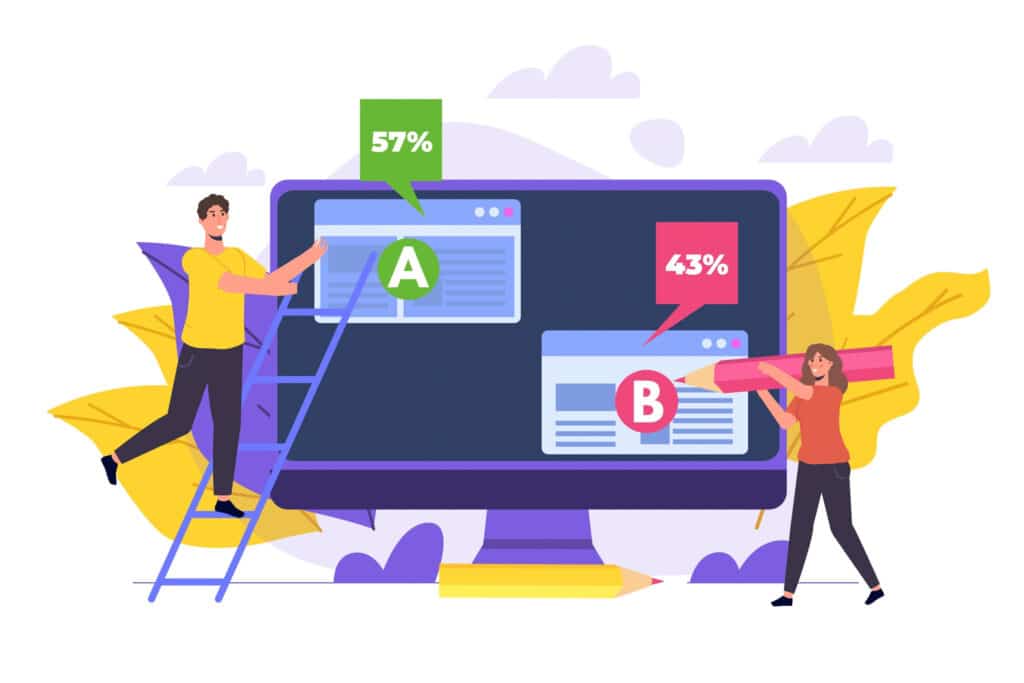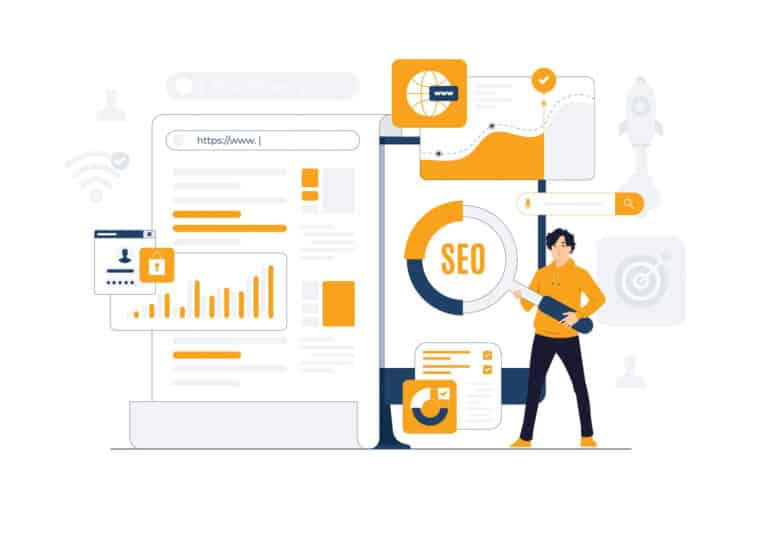Have you ever hesitated to try something new because you’re convinced the way you’ve always done it is already the best? Or maybe you’ve wondered if there’s truly a better option out there but weren’t sure how to go about figuring it out. Enter A/B testing – an underutilised yet game-changing tool that marketers and business owners alike should have in their toolkit.
Whether you’re trying to perfect an email headline, deciding or refining your social media ads, A/B testing helps you make data-backed decisions. Let’s explore why you should be using it and why so many businesses still shy away from this powerful method of testing.
What is A/B Testing?
Simply put, A/B testing is the practice of comparing two versions of a piece of content – a webpage, an email, an ad, or even a social media post – with the goal of determining which performs better. Group A gets one version, Group B gets the other, and as the data rolls in, you figure out which one resonates most with your audience.
For example:
Trying to decide on the wording of an email subject line? A/B testing can show whether “10 Tips for Growing Your Business” performs better than “Boost Your Business Growth with These Tips!”
Wondering if a picture of a hotel room does better than a picture of real people? Test two ads to the same audience on your Meta campaigns – set them live at the same time and see what one does better after a set period of time.
It’s like running a mini-experiment with your audience, all while ensuring you’re using solid evidence – not guesswork – to drive your decisions.
Why Should We A/B Test?
Here’s the thing about opinions – they’re often subjective. What you or your team think works best may not necessarily align with what your audience actually responds to. That’s where A/B testing steps in, offering several benefits:
1. Better Engagement with Your Audience
When you test different versions of your content, you learn what your audience truly prefers. Whether it’s email headers, landing page layouts, or social media posts, A/B testing helps you refine your messaging to connect more deeply with your audience.
2. Improved Conversion Rates
Tweaking just one element – like the colour of a button or the placement of a call-to-action – can result in significant improvements in your sales or signups. Small changes, when guided by A/B testing, can yield big results.
3. Data-Driven Decision Making
A/B testing removes the guesswork. Forget relying on intuition or old habits – this method equips you with clear, actionable insights. It shifts decisions from “I think this will work” to “I know this works.”
4. Cost-Effectiveness
Rather than revamping an entire marketing strategy based on assumptions, A/B testing lets you identify what’s already working and double down on it – saving you time and resources in the process.
How to Use A/B Testing for Your Business
Applying A/B testing isn’t as daunting as it may sound! Here are the basic steps to get started:
1. Pick One Variable to Test
Start small by focusing on one element at a time. For instance, if you’re testing email subject lines, don’t also change the email’s design in the same test. This way, you’ll know what caused the difference in performance.
2. Split Your Audience
Divide your audience into two groups (randomly, if possible). Show Group A one version and Group B the other. Both groups should be similar in size and behaviour for accurate results.
3. Set Clear Goals
Decide what you’re measuring – is it higher click-through rates? A boost in sales? More time spent on your website? Clear goals ensure you’re tracking valuable outcomes.
4. Run the Test
Launch your test and gather enough data to ensure the results are statistically significant. (Pro tip: Running the test for an hour or just one day may not give you a reliable sample size!)
5. Analyse Results and Take Action
Once you’ve collected enough data, see which version performed better. Use those insights to optimise future efforts and continuously fine-tune your business strategies.
Why Don’t We Test More Often?
Despite the clear benefits, many businesses still don’t take full advantage of A/B testing. Why is that?
Here are the most common reasons we hear:
“I already know what works.”
If something has worked well in the past, it can be tempting to stick with it. But your audience’s preferences can evolve over time. A/B testing ensures you stay relevant and up-to-date.
“It’s too time-consuming.”
People worry it might take too long to gather meaningful insights. The truth? Even a small test can uncover valuable insights relatively quickly with the right tools and approach.
“We’ve always done it this way.”
Ah, the old “if-it-ain’t-broke” mindset. But A/B testing isn’t just about fixing what’s broken – it’s about innovating, standing out, and staying one step ahead of competitors.
“What if we don’t have enough traffic?”
While larger traffic volumes produce clearer results, smaller businesses can still benefit from A/B testing by focusing on elements with high potential impact.
A/B Testing: A Tool for Continuous Growth
At its core, A/B testing is about stepping outside your comfort zone and challenging your assumptions. It’s about being curious enough to ask, “What if something else works even better?” and disciplined enough to test it and find out.
The beauty of A/B testing lies in its simplicity and adaptability. Whether you’re just starting your business or running an established company, this method can help you continuously optimise and improve.
Not testing yet? Now’s the perfect time to start. Begin with small, simple tests and build from there – it’s a surefire way to make better-informed decisions and grow your business over time.
Looking for guidance on your Digital marketing?
At Sprint Digital, we’re here to help you craft strategies that drive real results. Get in touch with our team today to learn how we can support your business on its path to growth and success.





